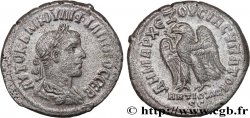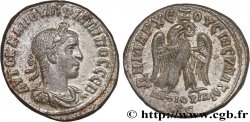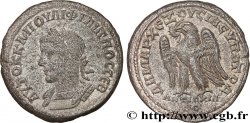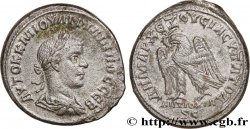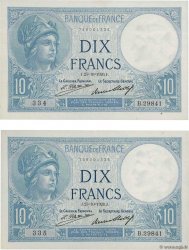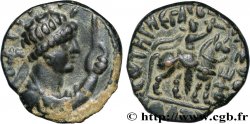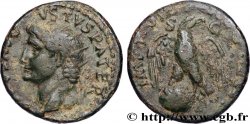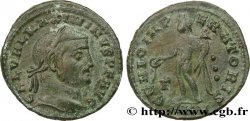bpv_738760 - PHILIPPUS II Tétradrachme syro-phénicien
120.00 €(Approx. 139.20$ | 105.60£)
Quantity
Add to your cart

Type : Tétradrachme syro-phénicien
Date: 249
Mint name / Town : Antioche, Syrie, Séleucie et Piérie
Metal : billon
Diameter : 27 mm
Orientation dies : 6 h.
Weight : 12,20 g.
Coments on the condition:
Exemplaire sur un flan ovale bien centré. Beau buste de Philippe II. Joli revers bien venu à la frappe. Belle patine gris métallique avec des reflets dorés. Conserve la plus grande partie de son brillant de frappe et de son coupant d’origine
Catalogue references :
Obverse
Obverse description : Buste lauré, drapé et cuirassé de Philippe II Auguste à droite, vu de trois quarts en arrière (A*2).
Obverse legend : AUTOK K M IOUL FILIPPOS SEB, (Autokratoros Kaisaros Markos Ioulios Filippos Sebastos)
Obverse translation : (L’empereur césar Marc Jules Philippe auguste).
Reverse
Reverse legend : ANTIOXIA / S|C À L’EXERGUE.
Reverse description : Aigle debout à droite, les ailes largement déployées, tête à droite et queue à gauche, tenant une couronne feuillée dans son bec.
Reverse legend : DHMARC - EX OUSIAS UPATO D
Reverse translation : (Revêtu de la puissance tribunitienne / Consul pour la quatrième fois / avec l’accord du Sénat d’Antioche).
Commentary
Dans la base TSP maintenue par Michel Prieur, trois cent quatre-vingt dix exemplaires sont maintenant répertoriés pour ce type dont en musées Paris, Bonn, Jérusalem (8), British Museum (3), Hunterian, ANS (4), Yale (3), Berne, Berlin, Doura (18) et Gaziantep.
In the TSP database maintained by Michel Prieur, three hundred and ninety examples are now listed for this type including in museums Paris, Bonn, Jerusalem (8), British Museum (3), Hunterian, ANS (4), Yale (3 ), Bern, Berlin, Doura (18) and Gaziantep
In the TSP database maintained by Michel Prieur, three hundred and ninety examples are now listed for this type including in museums Paris, Bonn, Jerusalem (8), British Museum (3), Hunterian, ANS (4), Yale (3 ), Bern, Berlin, Doura (18) and Gaziantep








 Report a mistake
Report a mistake Print the page
Print the page Share my selection
Share my selection Ask a question
Ask a question Consign / sell
Consign / sell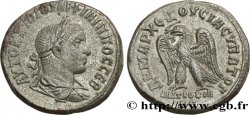
 Full data
Full data
